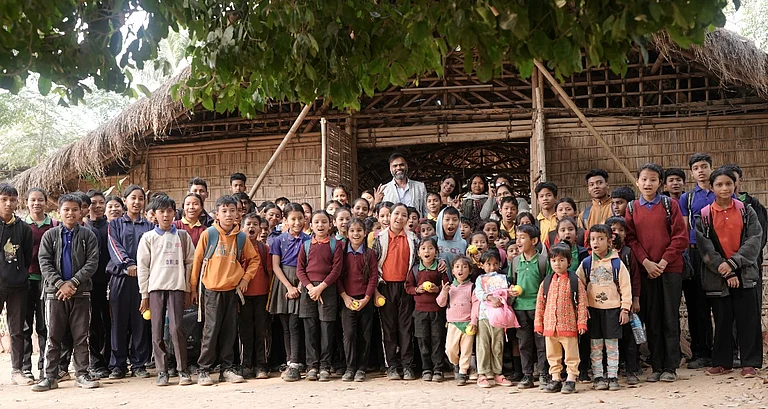Why did the Taliban suddenly decide to demolish the statues?
Ever since the sanctions were imposed on January 20, the Taliban has been in a state ofdefiance against the West. Since then they closed down the UN political office in Kabul,massacred 300 Hazaras, an ethnic minority, executed two women and flogged 12 others. TheJanuary 20 sanction was the last straw. They are in no mood to compromise over Osama binLaden or anything else and want to tell the world that they dont really care aboutrecognition.
Whats the impact of the sanctions?
The humanitarian crisis in Afghanistan is now catastrophic. Weve had two years ofdrought. The Taliban have been unable or unwilling to offer relief or any kind ofgovernance to the people. But the sanctions have not affected the Taliban so much becausethere is very little you can actually sanction in Afghanistan. But I dont think theTaliban will be able to tide over this crisis. You already have 5,00,000 internal refugeesand by this summer this number could touch one million. Given that you have three millionrefugees in Iran, Pakistan and Central Asia, its catastrophic. Post-demolition, Ithink the donor aid will be further reduced, because it would be difficult to convincecountries to give money for UN relief operations in Afghanistan.
What is your assessment of the international reaction?
I am very critical of Muslim countries who have not differentiated between the kind ofIslam the Taliban has been implementing and true Islam. It is not up to the West todelineate the Taliban as instruments of fundamentalism but it is the responsibility of theMuslim world. Saudi Arabia has not made a single comment. Given that its thecustodian of all Muslims as well as of Mecca and Medina, it should have made a strongcomment. Qatar has made a strong comment. The oic has condemned it but that came very latein the day. The Muslim world should have played a stronger role.
Over the years, has the American approach to the Taliban changed?
The Americans were supporting the Taliban till 1997, even after it captured Kabulin 1996. Then came Bin Laden and the attack on US embassies. That the Taliban has givensanctuary to Bin Laden has dominated Washingtons approach. If, for example, there isa chance of a deal on Bin Laden, what the Taliban would look for is recognition inexchange for handing over the Saudi terrorist. There are elements in the US governmentwhod be quite happy to do that. But other elements, both in the administration andspecially outsidefor example, the womens lobby, the anti-narcoticslobbywould be very reluctant about recognising the Taliban. After the Buddhaincident, I think it will be very difficult to cut any kind of deal with theTalibanand this even if they hand over Bin Laden.
What about the blowback of the Taliban on Pakistan?
The Taliban emerged from the new madrassa phenomenon along the border of Pakistanand Afghanistan. And now what we are seeing is the return of the Taliban teachings toPakistan.
Where does New Delhi figure in the Taliban gameplan?
India has provided field hospitals and three new helicopters, which were boughtthrough Russia, to Ahmad Shah Masoods anti-Taliban alliance. India has always beenproviding covert financial support to him. It now sees the opportunity provided by theinternational mood against terrorism to jump on the bandwagon and be part of the consensusagainst terrorism and, of course, inflict some embarrassment on its old enemy, Pakistan,which is supporting the Taliban and also to show the Central Asian republics that it iswilling to support their military and security concerns.
There are reports that Mullah Omar is reclusive.
He doesnt meet anyone, he doesnt travel, he has been to Kabul onlyonce and has never been to northern Afghanistan. There were in the past large shooraswhich were attended by tribal leaders, commanders, mullahs. He only seeks the opinion ofthe ulema in Kandahar who are all about 80 to 90 years old.
What does this mean for the Taliban?
The Taliban will become more extremist. Mullah Omar is not listening to reason. TheTaliban government in Kabul is desperately grappling with the humanitarian crisis, itwants some kind of working relations with the western ngos. If they had a chance ofmeeting Mullah, they would have argued against the destruction of the Buddhas. There isalso a growing popular disillusionment with the Taliban because of the economic andhumanitarian crises. I foresee a power struggle between the moderates and extremists inthe Taliban, though it is difficult to tell what shape it will take.

























